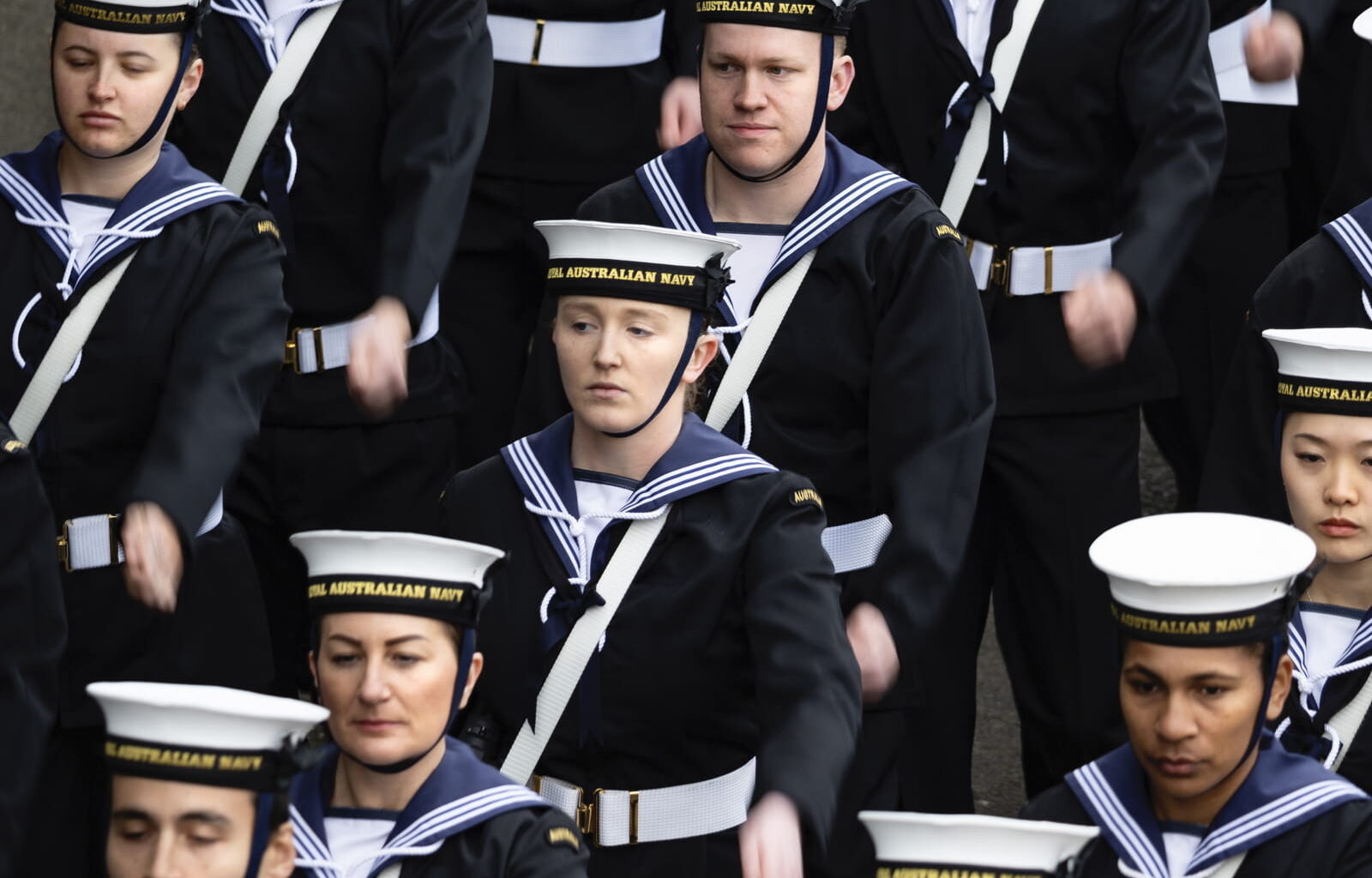Richard Flanagan’s acclaimed novel The Narrow Road to the Deep North (2013) and now Justin Kurzel’s TV adaptation, released globally over recent months, are about many things: love, lust, duty and their subtle differences; the limits of human suffering; and the incomprehensible survivor’s guilt felt by veterans.
Viewed in 2025 – with large-scale, “hot” conflict in Australia’s region feeling closer than at any point in the last half century – Kurzel’s miniseries is also a meditation on whether different generations can ever comprehend the experiences of others.
Set across three timelines, the miniseries follows protagonist Dorrigo Evans, a medical officer charged with leading Australian prisoners of war on the Thai Burma Railway during the Second World War.
The first two timelines are in short chronological succession, with Evans depicted by Jacob Elordi. Before the railway, Evans falls into an engagement with future wife Ella (Olivia DeJonge). However, he finds real passion with Amy (Odessa Young), his uncle’s “far too young” second wife. It is the memories of Amy that carry Dorrigo through the brutality of the POW camp. Starvation, senseless violence, and hopelessness define this chapter.
Skipping forward to 1989, the older Evans (Ciarán Hinds) is a successful surgeon and a venerated war hero. Though most reviews of The Narrow Road (both the novel and screenplay) rightly focus on the narrative and characters, it is here, in Evans’ old age, that Kurzel says most about different generations’ relationship to war.
This Evans is brooding and adrift in the late 20th century, surrounded by people desperate to either judge or honour him, but are never able to properly comprehend his experience.
The intergenerational tension is most explicit when Evans is asked by a young journalist: “What do you recall most of that time, the time as a prisoner?”
He replies: “The strange, terrible, never-endingness of human-beings. Though in truth, our enemies were more monsters than men.”
The reporter asks back: “What about us? Hiroshima, Nagasaki, are those not monstrous acts?”
“We were forced to extreme measures.”
“Atomic bombs are beyond extreme, wouldn’t you say, Mr Evans? I’ve been to Japan, I’ve spoken to survivors who’ve lost everything.”
“You’ve been to Japan, have you? That offer you some great insight? Believe me, young lady, you have no comprehension of war.”
“Because I’m a woman?”
“No, because you weren’t there. It’s not that you know nothing about war. It’s that you know one thing. War is many things.”
“Well, what are those things?”
“You don’t want to fucking know.”
Young Australians would be forgiven for thinking it unfair that they should also have to risk their lives for older generations who have prospered during peacetime while facing little jeopardy.
At many points, the older Evans also reluctantly accepts the hero status foisted upon him. But others struggle to understand his constant deflection of praise to fellow veterans and his invocation of luck as the only real reason for his surviving the war.
That Flanagan’s story has been brought to life on the screen in 2025 gives new urgency to these questions of how different generations relate to war.
The place of war in Australian consciousness has been mostly retrospective: present generations owing a debt to their forebears, with the world wars most prominent in Australians’ minds. Though Australia has fought many wars since, the Pacific conflict remains the last time the continent was directly threatened.
Now, though, Australia faces a fresh prospect. Should large-scale conflict break out in the Indo-Pacific, it will be a war largely fought by Millennials, Gen Z, and Gen Alpha (though the extent of mass mobilisation in the Second World War is unlikely to be repeated in a future conflict).
But recent Lowy Institute polling indicates a generational challenge should Australia find itself imperilled. 52 per cent of respondents answered affirmatively when asked: “If Australia were attacked directly by the military of another country, and you were physically capable of doing so, would you be willing to fight to defend Australia?” However, just 31 per cent of 18-29-year-olds, and 41 per cent of 30-44-year-olds, answered “yes”. Most worryingly, 42 per cent of 18-29-year-olds said they would not fight.
There are likely many explanations. A less cohesive national identity. A fractured information environment. The characteristic cynicism of Gen Z. The absence of an imminent threat to Australia. The tarnished reputation of Australian forces following the Brereton report into special forces’ conduct in Afghanistan.
The Narrow Road hints at another reason. Most young Australians are increasingly less likely to have any personal connection to war – whether directly or through family. At least four generations since the Second World War have been blessed with relative peace from a global or region-wide conflict.
Such generational distance, as Evans’ terse interview illustrates, means that not only the horror and brutalising effect of war are misunderstood – but also, at times, its grim necessity.
The risk for Australia is that generational distance compounds with the acute intergenerational unfairness felt by many young people. Millennials and Gen Z already see a housing market and wealth distribution stacked against them. Add to this slow wage growth, more uncertain job prospects, and lost years of youth during Covid-19.
Young Australians would be forgiven for thinking it unfair that they should also have to risk their lives for older generations who have prospered during peacetime while facing little jeopardy. There’s some irony as well that many older Australians have grown rich off the back of feeding the industrial capacity of China – the very threat younger Australians may soon have to confront.
The Narrow Road reminds us there is little justice in the lottery of birth. Some generations are bound to endure tremendous hardship, while others enjoy the dividends of peace. But one lesson Australians should take from Evans’ tale is to seek mutual comprehension between generations as a matter of national resilience and cohesion, no matter how hard it seems.
